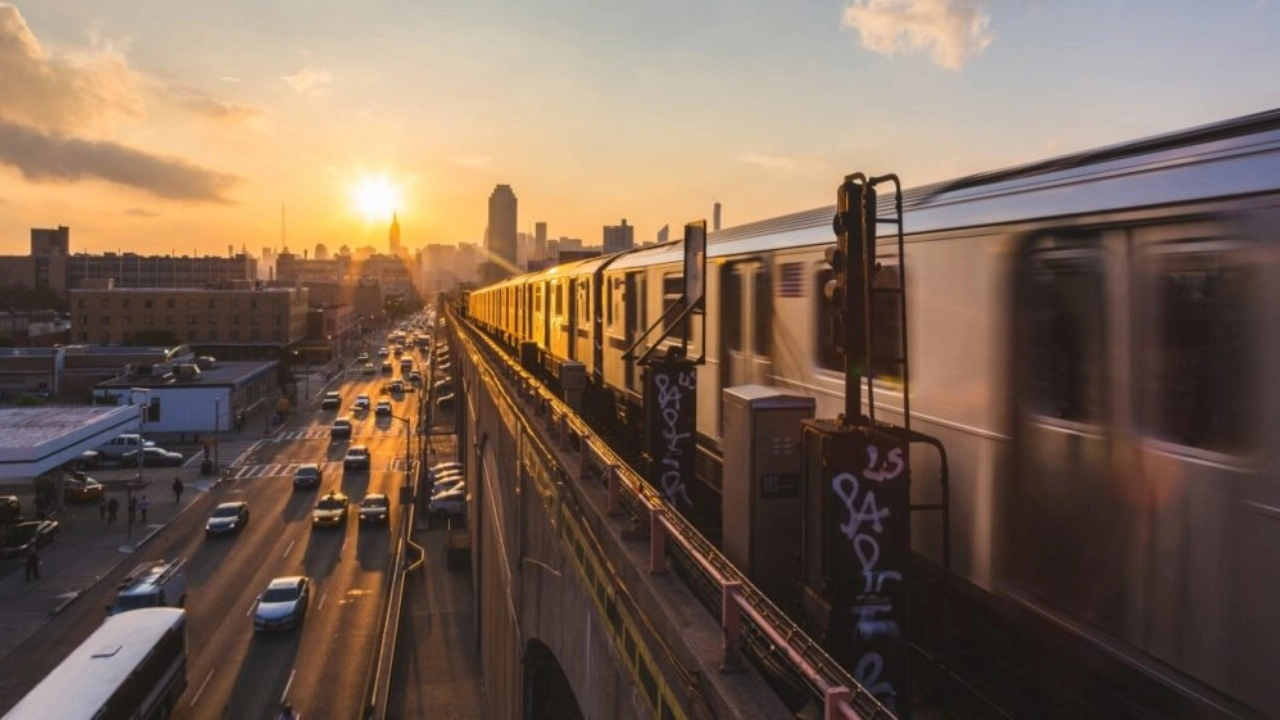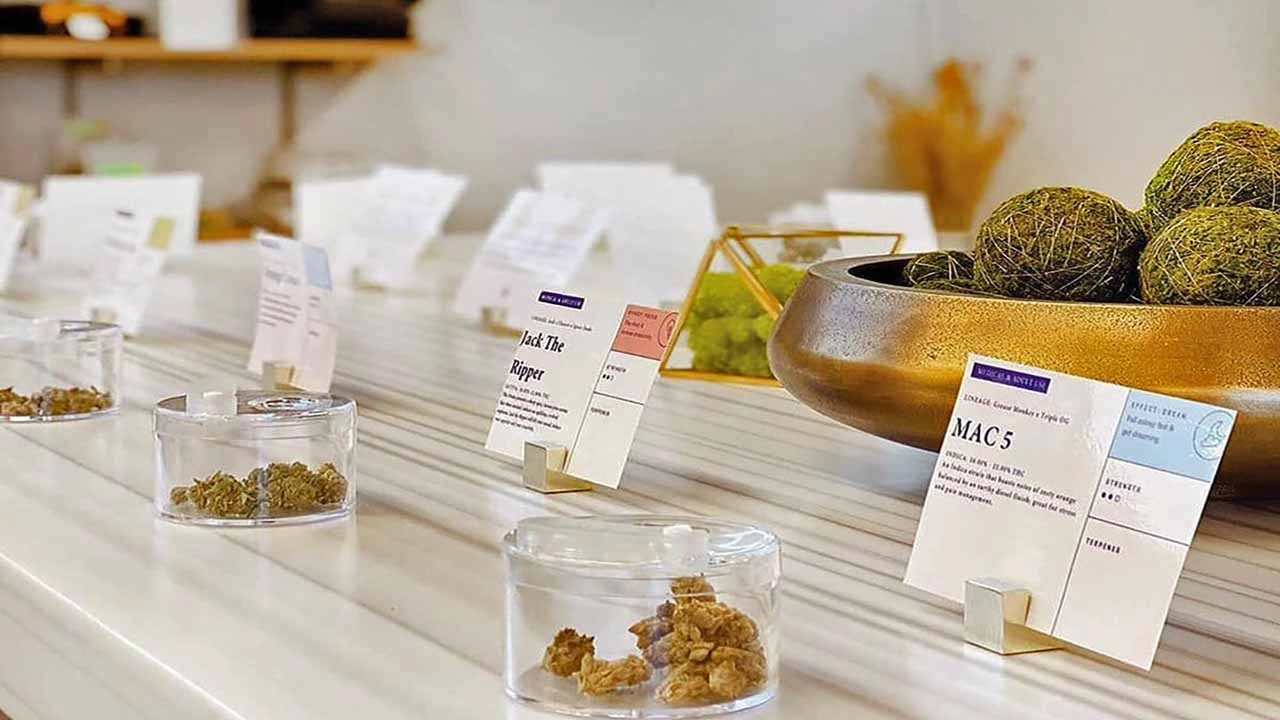New York is set to inject $200 million into the local marijuana real estate market, leasing up to 150 retail properties that will be given to social equity businesses to give them a leg up in the state’s new recreational market.
The move is believed to be the first of its kind in the U.S. cannabis industry, and, if successful, could provide a road map for other states rolling out social equity programs.
At least one brokerage firm, CBRE Group, is already scouting locations on behalf of the Dormitory Authority of the State of New York (DASNY), the agency overseeing the disbursement of the funds, a DASNY spokesperson confirmed in an email to MJBizDaily.
CBRE representatives are “looking for good retail locations throughout the state located in municipalities that have opted in to allow retail dispensaries,” according to the spokesperson, Jeffrey Gordon.
The brokerage firm declined to comment.
Ripple effects
While the DASNY said that no leases have been signed for social equity companies, industry insiders say the government’s entrance into marijuana real estate is causing ripple effects for other businesses – particularly smaller operators.
“They’re out there. They’re pounding the pavement,” Donny Moskovic, a real estate broker at Katz & Associates in New York City, said of CBRE agents.
Moskovic has been working with Cresco Labs – one of the state’s 10 existing medical marijuana licensees – to expand the Chicago-based multistate operator’s retail footprint in anticipation of the adult-use market’s launch.
Moskovic said there’s been a “frenzy” in the New York real estate market this year as entrepreneurs prep for the recreational market’s rollout, which could happen later this year.
“They’re everywhere. They’re looking at all locations,” Moskovic said when asked where CBRE is looking for retail spots.
He said CBRE is almost certainly already looking in every municipality that didn’t already opt out of legal cannabis sales, including New York City as well as upstate.
“If you speak to their broker, their broker tells you there’s $50 million in a fund, sitting there, already out of the $200 million, and they’re executing deals.”
The real estate support for social equity applicants has drawn praise for New York’s progressive approach to promoting diversity and increasing business opportunities for those affected by the nation’s war on drugs.
But it also has triggered concerns among local entrepreneurs and real estate brokers, some of whom contend that real estate agents working on behalf of the state might increase competition – and prices – for smaller operators also hunting for retail properties.
Business leaders need reliable industry data and in-depth analysis to make smart investments and informed decisions in these uncertain economic times.
Get your 2023 MJBiz Factbook now!
Featured Inside:
- 200+ pages and 50 charts with key data points
- State-by-state guide to regulations, taxes & opportunities
- Segmented research reports for the marijuana + hemp industries
- Accurate financial forecasts + investment trends
Stay ahead of the curve and avoid costly missteps in the rapidly evolving cannabis industry.
“It’s making it more competitive for the industry as a whole,” said Colby Piper, a New Jersey-based real estate broker who specializes in marijuana.
Piper, who’s been scouting locations for clients wanting to start adult-use companies in New York, noted the state hasn’t yet announced whether there will be mandatory setbacks between retail shops.
Mandatory setbacks make it hard for his clients to enter into long-term leases.
In addition, landlords often favor long-term deals with the state over leases with private businesses because the state is viewed as a more reliable a tenant, Piper said.
As a result, Piper is trying to steer clear of wherever he hears CBRE agents are scouting.
“When we find out, very quietly, where the state is looking, we can tell (our client), ‘This section might be too crowded; we should try the next block up,’” Piper said.
Program details
According to DASNY’s Gordon, the state’s fund hasn’t yet been allocated, nor has a manager for the $200 million been chosen.
He added that a pair of requests for proposals (RFPs) tied to the fund are on schedule:
- Choosing a firm to select locations and sign tenant agreements – to be completed no earlier than June 20.
- Picking a build-out firm to oversee construction at the leased locations – to be chosen July 11.
The money is also being spent solely for retail business locations, not for cultivators or other sectors, Gordon confirmed.
The properties will be leased for 10-year terms, with no actual purchases in the pipeline.
Gordon wrote that DASNY’s goal is to have the first social equity retailer open by the end of the year and to have all 150 locations identified by the end of the second quarter of 2023.
Unanswered questions
Several questions remain, including how successful DASNY will be in trying to lock down 150 retail locations in New York for 10 years with only a $200 million budget.
According to a May 13 news release, the $200 million will come from “licensing fees and revenue from the adult-use cannabis industry and up to $150 million from the private sector,” not from the state general fund.
“Depending on how they negotiate these deals, and when the actual rent triggers, it could be possible” to get 150 locations rented, Piper said.
“But if the rent triggers Day One or Month Two, and they’re paying rent before they have applications written or before the application window even opens, that money is going to burn down pretty quickly.”
Many retail locations rent for as much as $45,000 per month, Piper noted as a hypothetical example.
“If you’re paying $45,000 a month, that doesn’t give you many locations” with $200 million, Piper said.
There’s also a lack of clarity around the licensing process and the social equity program in general, stakeholders said.
So far, the state hasn’t announced how many adult-use licenses will be issued, although regulators have said that half the permits will be reserved for social equity applicants.
It’s also unclear when the licensing window will open, either for social equity companies or non-social equity businesses.
Furthermore, many entrepreneurs are awaiting the final state marijuana industry regulations.
Many believe they can’t make solid plans without first knowing the regulatory framework, Piper said.
“They’re writing the regulations in piecemeal,” Piper said.
“The people who are trying to secure space (for marijuana businesses) … are not able to get ahead of the game with a risk-averse strategy without having the regulations,” he said.
“If we’re looking at five spaces with an operator, and the regs come out and say you have to be a thousand feet from a church, then maybe those five locations won’t be there. We don’t know.”
However, Moskovic added that the New York real estate market is large enough that DASNY and CBRE’s efforts have not been a major disruptor for dealmakers like him. He also predicted it won’t be an issue for larger businesses.
Rather, it’ll likely be more problematic for smaller- to medium-sized companies that are looking at retail spaces that might suit social equity startups, Moskovic said.
By contrast, Moskovic hasn’t run into major issues helping Cresco Labs find real estate for its expansion plans.
“At the end of the day, there’s a lot of real estate out there,” Moskovic said.
John Schroyer can be reached at john.schroyer@mjbizdaily.com.





